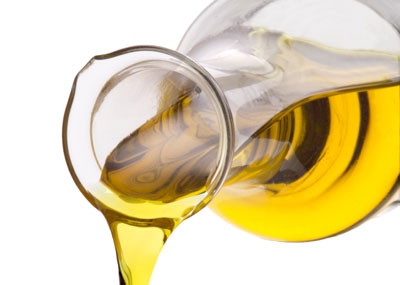Posts Tagged: olive oil
McEvoy Ranch is for the Birds!
In April, I read about how McEvoy Ranch located in Petaluma, California, and known for their estate-quality extra-virgin olive oil, was hosting special events and tours this spring and summer at the property, which is usually closed to the public. Needless to say, I had to go. I signed up for the May bird-watching tour, which gave attendees an opportunity to stroll through various parts of the ranch (the actual ranch is approximately 550 acres, most of which is being farmed and not accessible by the public). Although I enjoy observing birds in and out of the garden, this was my first official bird-watching tour ever.
The varied topography of the Ranch consisting of rolling hills, valleys, and numerous ponds, and beautiful and diverse gardens, attract a wide array of birds. On the tour, we observed a barn owl in its box, hummingbirds, various songbirds, some brilliantly-colored orioles which resembled Meyer lemons with wings, and two very impressive and imposing vultures sunning themselves atop tall trees. In between bird-watching, we got to visit the olive orchards and gardens on the property. Wherever I go, my perennial favorite is the edible garden, so I was delighted to visit two of their gardens where ornamental flowers were/are integrated with edible plants and espaliered fruit trees (see pictures below). Albeit beautiful, these gardens are not simply for display. The Ranch uses the fruit from their citrus trees and the lavender from their lavender berm, to produce various products which they sell.
Tours and events at the Ranch continue throughout the summer and vary in both price and theme. The last I read, there will be, at minimum, orchard walks and olive mill tours, a jam-making workshop, a wreath-making workshop, a guided walk through owner, Nan McEvoy’s private sculpture garden, and a cooking demonstration and garden tour with the Ranch’s head chef. For more information, see http://www.mcevoyranch.com/.

McEvoy Ranch (photos by Betty Homer)

P5181528

P5181554
Local Olives
Admittedly, this blog entry leans more towards food than cultivation, but hey, isn’t food one of the main reasons why we grow edibles in addition to edibles just being plain beautiful?? I believe our local readers will be delighted to know that we have a number of knowledgeable local olive growers, and, in turn, olive oil producers here in Solano County. This blog entry will feature one such local source—Il Fiorello Olive Oil Company located at 2625 Mankas Corner in Suisun Valley.
Il Fiorello (Italian for “little flower,” which describes the olive flower itself) is owned by Mark and Ann Sievers. I had the pleasure and privilege of attending a marvelous Chocolate and Olive Oil tasting event at Il Fiorello recently. This blog entry will focus exclusively on the olive aspect of the event (rather than chocolate), as olives can be cultivated locally.
During the event, Mark gave an informative lecture, filled with fun facts about olives:
- Most Olives are grown within 200 miles of the Mediterranean Sea.
- There are over 800 varieties of olives.
- Different olives produce different flavored olive oils.
- Greeks use more olive oil than just about anyone.
- There are approximately 800 olive mills in Sicily alone; contrast that with just 53 mills in the United States.
- California is the center for the olive oil industry in the United States.
- Oldest olive tree is in Sicily—approximately 2,600 years old.
Mark explained that when tasting olive oil, you should first use your nose to smell the oil and then taste for depth (fruitiness/bitterness, pungency (e.g., how peppery is it?), and balance). Pungency can be described by the number of coughs you experience as a result of tasting an oil. One of the many varieties of olives that the Sievers grow, is called a Lecchino, which is delicate in flavor and pairs well with vegetables such as spinach. Another variety that the Sievers grow is the Frantoio, which produces a more robust olive oil.
When caring for olive trees, Mark advised that one must be very careful to prune the trees because olives grow on 1-year old wood. Apparently, olive trees are fairly pest-resistant overall, having only one real pest—the olive fly (http://ipm.ucdavis.edu/PMG/PESTNOTES/pn74112.html ) which, according to Mark, is pretty easy to control. One healthy tree can produce approximately 40 pounds of olives which will render 2 quarts of olive oil. Mark said that olives start to deteriorate the moment they are harvested (helpful tip for those of you who have olive trees and harvest from them). Olives must be milled within 24 hours of harvest to achieve a superior oil.
Mark advised that olive oil, if kept properly (no heat, no light, no oxygen) in a cool, dark place, will last up to 3 years. He warned that most of the olive oil on supermarket shelves is rancid (I heard the same when attending an olive workshop presented at UC Davis this year) and that the only way a consumer knows to tell the difference, is to have developed a palate for good olive oil.
So if you love olives but do not have your own olive trees, look no further than to our local sources.

Photos by Betty Homer

P9021284

P9021287
Florida citrus growers explore olive opportunities
Citrus growers in Florida, who are struggling with the devastating citrus disease huanglongbing, are considering growing olives, according to a report on the Tampa, Fla., ABC news affiliate.
Reporter Ryan Raiche covered a meeting at the University of Florida Citrus Research and Extension Center where UC Cooperative Extension farm advisor Paul Vossen introduced growers to olive production and marketing and offered citrus growers the opportunity to taste a variety of olives and olive oils.
“This is not a slam dunk, because this is a really peculiar crop that needs really specific things in order to flower and fruit,” Vossen said.
Olives thrive in a dry climate where it’s not too hot and not too cold. Vossen said rain during bloom season could wipe out the crop.
Ojai man appointed to Regional Water Quality Control Board
Ventura County Star
Gov. Jerry Brown has appointed Ventura County UC Cooperative Extension director emeritus Larry Yee to the Los Angeles Regional Water Quality Control Board.
The board oversees water quality issues and has the power to fine polluters.
Yee worked for the UC Cooperative Extension from 1975 to 2008 and was the Ventura County director from 1986 to 2008. He also was director of the UC Hansen Trust, which was set up to promote agricultural research and education.
LA area olive farm produces oil for local markets
In the last two decades, artisanal olive oil production in California has surged as consumers have developed an appreciation for the freshness, high quality and distinctive flavors that good locally produced oil can provide, reported food writer David Karp in the Los Angeles Times.
The story focused on Joyce Lukon, who bought a lot with a view of Topanga Canyon as an investment and tried to make it more attractive for resale by planting grapes and olives. She took classes in the sensory analysis of olive oil taught at UC Davis by Paul Vossen, a Sonoma County farm advisor who has been a prime inspiration of the California artisanal olive oil boom, and he later visited several times to advise her.
Lukon now sells her 375-milliliter bottles of olive oil for $25 each at two farmers markets and online.
Debate over groundwater heats up
Tim Hearden, Capital Press
What to do about declining groundwater supplies was the subject tackled by 100 farmers, environmentalists and government officials during an all-day workshop offered by the University of California Cooperative Extension.
"We need to pay attention, we need to be educated and we need folks to talk to their local leaders and help them understand ... both sides of the issue," said Tehama County supervisor Bob Williams, who is an oat and alfalfa hay producer.
Midyear cuts will spare ag programs
Tim Hearden, Capital Press
The $1 billion in midyear state budget cuts announced by Gov. Jerry Brown won't directly affect agencies that assist farmers and ranchers.
The University of California system will use reserves to absorb its sudden $100 million hit, meaning local Cooperative Extension offices will be able to maintain their services, said Dianne Klein, a media specialist on the UC Office of the President communications staff.
"What the university intends to do, on a short-term basis, is draw upon reserves currently held to pay for unexpected cost in employee health and welfare plans," Klein said in an e-mail. "This, in essence, is a rainy day fund. We've declared a rainy day."
There may be other measures to cover the $100 million loss, but using the health plan fund "represents the lion's share of the cost," she said.
California olive oil trade rivals Europe
California producers have mounted a major effort to bring back the domestic olive oil industry, planting thousands of acres, building mills and producing oils that are fresher, purer and cheaper than all but the finest imports, said a New York Times News Service article by Julia Moskin.
In fact, the article noted, a recent study by the Olive Center at UC Davis found that 69 percent of imported extra-virgin olive oils bought off the shelves of California supermarkets failed to meet international standards. European producers, however, said that testing supermarket products proves nothing about the relative quality of imported and domestic oils.
“You can’t decide that all imported oils are suspect and dismiss thousands of years of craftsmanship,” scoffed an American expert who farms olives in Tuscany. Critics also question the cultivation and production methods used in California.
UC Cooperative Extension olive oil expert Paul Vossen, who has worked with virtually every olive grower in the state, called that idea “a bunch of baloney.” He said high-density planting currently works only with certain varieties — arbequina and arbosana from Spain, and koroneiki from Greece — but for those, the practice is no different from other kinds of farming.
Early rain complicates walnut harvest
Tim Hearden, Capital Press
Nearly a week's worth of early-season rain in Northern California brought the normally robust harvest of middle and late walnut varieties to a stop. More than half the state's estimated 485,000-ton walnut crop consists of later varieties, many of which got caught in the rain
With growers fearing they might be hit with unfavorable weather during their harvest, some applied etheryl to induce hull split early, said UC Cooperative Extension farm advisor Rick Buchner. Whether or not that was beneficial is "a matter of some debate."
"Some guys were happy to get the husk open because the nut is going to dry faster," he said. "Even if it's laying on the ground, it's drying. That could be an advantage."




